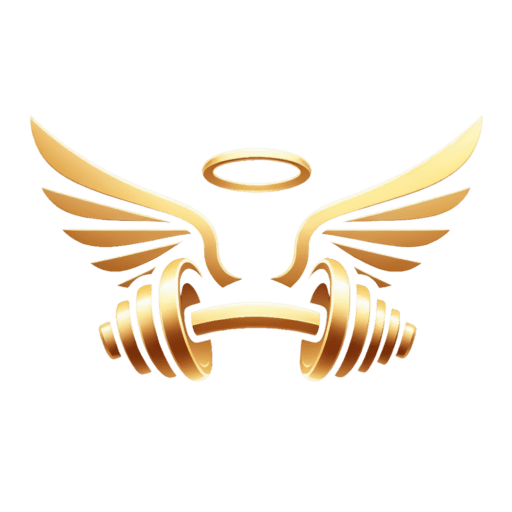Introduction
Do you want to maximize your muscle gains and improve your bodybuilding performance? Protein will be the key to your success. Indeed, they are essential for your muscle recovery, and as a result, will ensure better muscle growth and better progress in your performance.
However, protein remains a complex macronutrient that must be understood in order to control it to your advantage! In this article, you will discover what proteins are, where to find them and how to optimize them to achieve your bodybuilding goals.
What is a protein ?
Proteins are vital macromolecules composed of chains of amino acids. They are the main component of muscle tissue in the body, the main reason why they help you recover quickly and build muscle.
Nutritionally speaking, proteins provide 4 kcal per gram, like carbohydrates.
Of the 20 standard amino acids, nine are essential because your body cannot produce them itself.
Here is the complete list of amino acids:
Essentials:
Histidine,
Isoleucine,
Leucine,
Lysine,
Methionine,
Phenylalanine,
Threonine,
Tryptophan,
Valine.
Non-essential:
Alanine,
Arginine,
Asparagine,
Aspartic acid,
Cysteine,
Glutamic acid,
Glutamine,
Wisteria,
Proline,
Serine,
Tyrosine.
Essential amino acids are those that your body does not produce, and that you will have to obtain in your diet.
However, as we will see later, not all foods contain all of these amino acids.
As for non-essential amino acids, they are produced by your body in varying quantities.
Some are called “semi-essential” because they are not produced in large enough quantities by the body.
It may be wise for some to consume them all the same, especially for certain virtues which can boost your body, but we will see this in specific dedicated articles.
Where to find proteins?
To optimize your diet, it is crucial to know where to find essential amino acids and how to integrate them effectively.
If you lack even one, your body risks malfunctioning and in addition to limiting your progress, you expose yourself to health problems.
Animal Proteins
Animal proteins are complete, they contain all the essential amino acids:
Chicken and turkey: Rich in isoleucine and leucine.
Lean beef: Source of valine and methionine, and creatine.
Pork: Rich in thiamine and B6, it also provides leucine and lysine.
Eggs: Contain all essential amino acids, including lysine and threonine.
Fish (salmon, tuna): Excellent for phenylalanine and tryptophan, with omega-3.
Dairy products (milk, yogurt, cheese): Rich in leucine, isoleucine and valine.
Plant Proteins
Plant proteins can also be complete if you combine them correctly:
Quinoa: Contains all essential amino acids, particularly rich in histidine.
Legumes (lentils, chickpeas, beans): Rich in lysine and isoleucine.
Tofu and tempeh: Good sources of leucine and methionine, ideal for vegetarian and vegan diets.
Nuts and seeds (almonds, chia, flax): Provide valine, phenylalanine and tryptophan.
Cereals (wheat, rice, oats): Rich in methionine and cysteine, they complement well with legumes to form a complete amino acid profile.
Speed of protein assimilation
To optimize your muscle gains, it’s important to know what fast and slow proteins are, and where to find them. Here is a list of the main fast and slow proteins and their food sources:
Fast Proteins
Fast proteins are digested and absorbed quickly by your body, providing a rapid release of amino acids. They are ideal for post-workout consumption.
Whey: It is mainly found in protein supplements, such as whey powders.
Egg whites: Easy to digest and a great source of fast protein.
Lean fish (cod, sole, cod): Rich in quickly assimilated proteins.
Slow Proteins
Slow proteins are digested and absorbed more slowly, providing a prolonged supply of amino acids. They are perfect for consumption before bedtime.
Casein: Found in dairy products like milk and cheese, as well as casein supplements.
Greek Yogurt: An excellent source of slow protein with a prolonged digestion profile.
Cottage Cheese: Rich in casein, it provides a slow release of amino acids.
Tofu: A vegetarian source of slow protein, particularly rich in essential amino acids.
By strategically integrating fast and slow proteins into your diet, you can maximize muscle protein synthesis and optimize your bodybuilding results.
Fast proteins are ideal post-workout for rapid recovery, while slow proteins support muscle growth during fasting periods, such as overnight.
Protein Optimization
To maximize your muscle gains, here is how to optimize your protein consumption in practice:
Amount of Protein required
Consume between 1.5 and 2.5 grams of protein per kilogram of body weight per day. If you weigh 70 kg, aim for between 105 and 175 grams of protein per day.
Adjust this quantity according to the intensity of your training, your goals, but also your ability to digest and your diet. Indeed, if you follow a ketogenic diet for example, proteins should not exceed 25% of your total caloric intake.
Protein Timing
Post-Workout: Consume protein within an hour of your workout. Combine them with carbohydrates for optimal recovery and maximum stimulation of muscle protein synthesis.
Daily meal distribution: Distribute your protein intake throughout the day. Incorporate protein into every meal and snack to maintain consistent protein synthesis. The goal is to have protein being digested at all times in order to have a consistent supply over the longest period possible.
Speed of digestion: Prefer slow-assimilation proteins when you are about to go a long time without eating, and those with rapid assimilation around your training sessions.
Conclusion
Optimizing your protein intake is crucial to maximizing your muscle gains and improving your bodybuilding performance. By knowing where to find each amino acid, distributing your intake throughout the day and adjusting the quantities to your needs, you will be able to achieve your goals more quickly and effectively.
Take your nutrition seriously, choose quality proteins and watch your body transform. You have the power to reach new heights in your bodybuilding practice.
If you found this article interesting, share it, and if you have any questions, don’t hesitate to contact me to talk about it!

